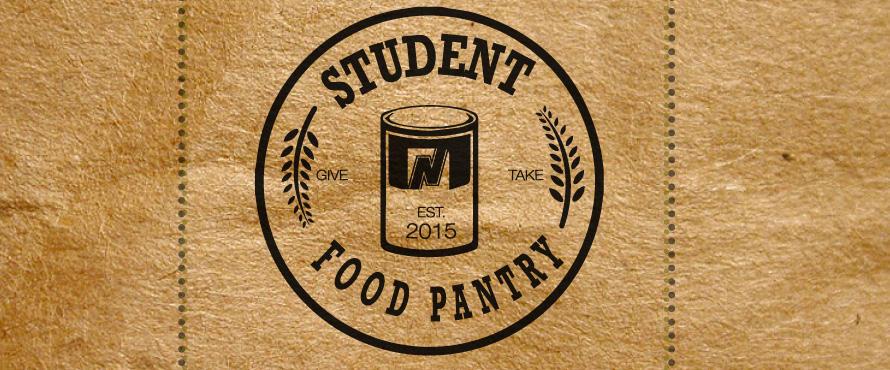Hunger is Not on the Menu
More stories from Laura Rojas
Courtesy of the Student Food Pantry
The Student Food Pantry is open to all students.
A long desired project has finally been launched at NEIU to help students who may be facing food insecurity.
The Student Food Pantry opened its doors this January as an on-campus resource where students can go if they have fallen on hard times and have little to no access to fresh, healthy food. While donations are accepted, the pantry is partnered with the Greater Chicago Food Depository (GCFD) an organization that supplies food pantries throughout the city of Chicago. This new partnership also makes NEIU the first university to be part of the GCFD’s Healthy Kids Market.
The idea for a food bank arose in 2013, after several staff and faculty members, mostly through private discussions, realized that many students were making the hard choice between eating properly and buying books for their classes or paying tuition.
From these “conversations in the corner” about NEIU’s students struggling to feed themselves many staff and faculty members felt that something should be done to help, according to Kristine Pierre, senior director of Academic and Community Partnerships for the division of Student Affairs.
But at the time there had been several difficulties that impeded this aid for students.
After many false starts due to understaffing and budget issues, the project finally took off when Hannah Retzkin-Simson was named the director of Student Advocacy and made the food pantry a top priority.
Originally, there were thoughts of the pantry being solely donation based but this would leave the pantry with an unsteady supply, according to Retzkin-Simson. Therefore it would not be a very reliable resource for students in need.
“My nightmare was opening a pantry with all of these donations and then running out of food,” Retzkin-Simson said.
Retzkin-Simson then contacted the GCFD, calling them almost daily. Initially, NEIU was denied because the university did not qualify under their conditions as a pantry. Among other requirements, the university was unable to provide a separate sink and fridge solely for the use of the pantry. But after much discussion Retzkin-Simson and the GCFD were finally able to find a way to fund the project.
The GCFD suggested that NEIU would be a good candidate for a different type of funding that is part of their Healthy Kids Market. Which is the same food assistance schools, from elementary to high school, receive around Chicago.
With this new partnership, the university is able to receive large amounts of food weekly for the pantry, especially fresh produce.
“(This) was very important to me to offer healthy fresh food, not just canned food and processed food,” Retzkin-Simson said.
The pantry still accepts donations and holds food drives to supplement what they receive from the GCFD. The pantry is a give-and-take program that is completely open to all students. It is located in the B building,room 140.
There is no application, only a survey that is emailed to the students for demographic purposes and to establish documentation that the pantry is in fact creating a change.
There are also other amenities donated and available such as personal hygiene products, like shampoo and toilet paper for students struggling in other areas other than hunger.
Marco Martinez, a student volunteer with the food pantry, said that there were also supplies for students with young children such as diapers, formula and wipes. However, this was due to a large donation of these items and there is no guarantee these provisions will always be available.
“(The pantry) gives NEIU a sense of community and a sense of caring,” Martinez said. He also encourages more students to volunteer with the program.
Pierre also sees the project’s start as a success but is worried about its future. More volunteers will be required in hopes to maintain it as a stable source of assistance for the students.
“The staying power is in terms of finding a base of volunteers that will continue to staff (the project),” Pierre said.
A full list of acceptable donations and pantry volunteer applications can be found at neiu.edu/studentadvocacy.
Your donation will support the student journalists of Northeastern Illinois University's The Independent, either in writers' payment, additional supplies and other items of note. Your contribution will allow us to purchase additional equipment for writers/photographers/illustrators and cover our annual website hosting costs.
Laura Rojas



